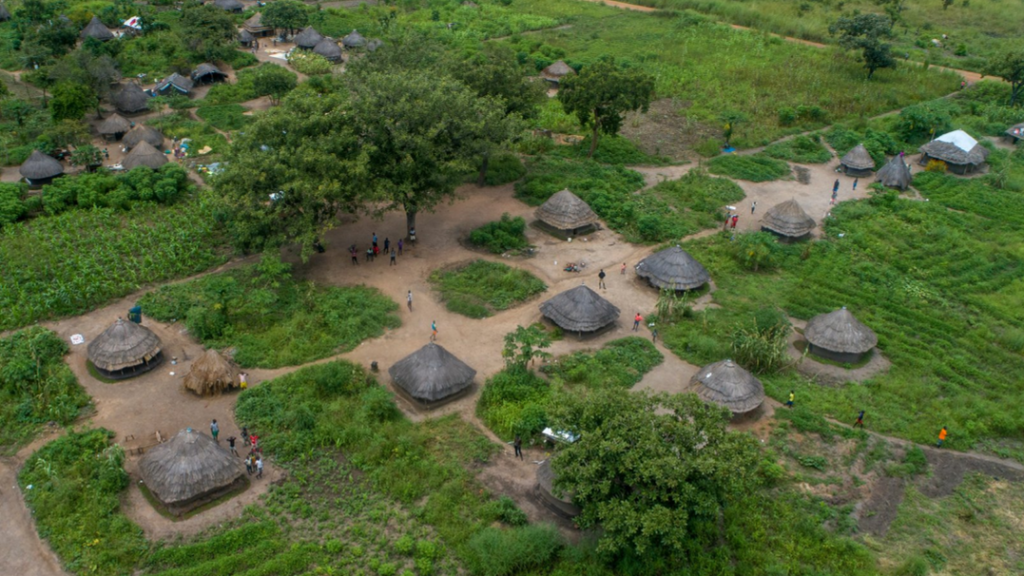A tragic incident occurred at the Palabek Refugee Settlement in north-west Uganda when a lightning strike during a church service claimed the lives of 13 children and one adult. The event took place on a Saturday evening, highlighting the dangers associated with the region’s prevalent thunderstorms, particularly during recent heavy rains. The Ugandan police reported that in addition to the fatalities, 34 individuals sustained injuries as a result of the strike. This incident amplifies concerns regarding natural disasters within crowded and vulnerable refugee populations, as they often lack the necessary infrastructure and safety measures to protect against such occurrences.
The adult victim was identified as a 21-year-old, but the police have not disclosed the specific ages of the children who lost their lives. The loss of these young individuals has deeply affected the community within the refugee settlement. Palabek is home to over 80,000 refugees and asylum seekers, primarily from neighboring South Sudan, who have fled their homes due to conflict, violence, and other challenges. This tragic event serves as a grim reminder of the vulnerabilities faced by those living in refugee camps, where survival often hinges on external factors beyond their control.
The Palabek Refugee Settlement has previously experienced incidents of lightning-related fatalities, including a similar occurrence four years ago in the city of Arua, where 10 children died while playing football during a thunderstorm. These recurring tragedies underscore the urgent need for increased awareness and education about safety measures during thunderstorms, especially in regions where the frequency of such weather events is on the rise. Despite the dangers, many refugees and residents, especially children, are often unaware of the precautions necessary during severe weather.
Local authorities, including Kituuma Rusoke, spokesperson for the Uganda Police, have been vocal about the importance of community awareness during such weather conditions. They urge families and communities to seek safe shelter during thunderstorms and to educate children about the potential dangers associated with lightning strikes. As climate change continues to impact weather patterns around the world, the frequency and intensity of storms may increase, further threatening vulnerable populations in areas like Palabek.
International organizations and NGOs have also emphasized the need for better disaster preparedness and response strategies in refugee camps. Establishing safety protocols and providing education about severe weather can help mitigate the risks faced by these communities. Given that refugees often reside in precarious living conditions, addressing these vulnerabilities and enhancing safety can save lives. The loss of children in Uganda highlights the broader implications of inadequate disaster preparedness and the importance of prioritizing the safety of refugee populations.
In conclusion, the lightning strike at the Palabek Refugee Settlement represents a profound tragedy, reflecting the ongoing challenges faced by refugees in Uganda. As the realities of climate change exacerbate weather-related risks, it is crucial for governments, humanitarian organizations, and communities to implement measures to protect vulnerable populations. Preventative education, improved infrastructure, and established safety protocols can play a vital role in safeguarding lives and preventing similar incidents in the future, ensuring that the devastating loss of life experienced in Uganda is not repeated elsewhere.

